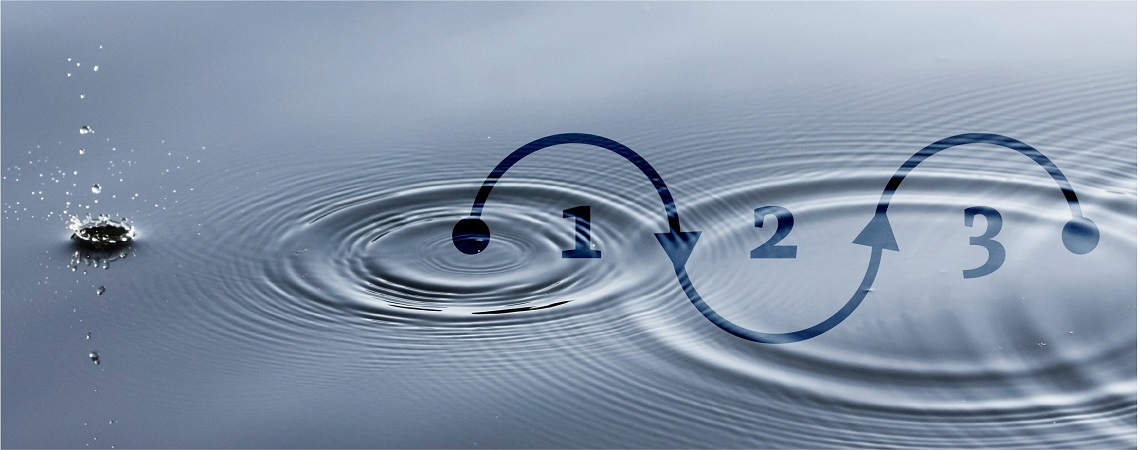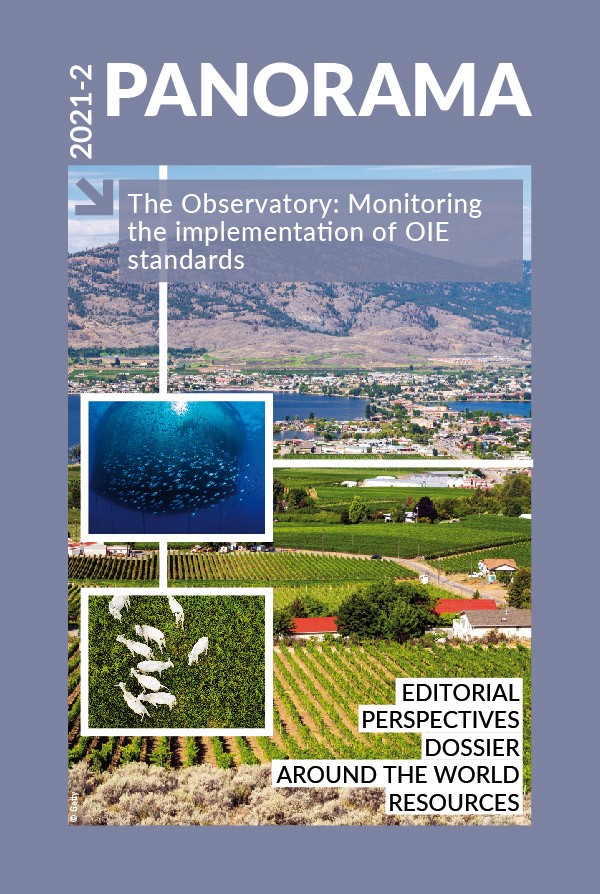Editorial Posted on 2021-12-14 10:06:40
The international regulatory cooperation response to global challenges
Supporting implementation and maximising the impact of international instruments through enhanced monitoring
Keywords
The designations and denominations employed and the presentation of the material in this article do not imply the expression of any opinion whatsoever on the part of the OIE concerning the legal status of any country, territory, city or area or of its authorities, or concerning the delimitation of its frontiers and boundaries.
The views expressed in this article are solely the responsibility of the author(s). The mention of specific companies or products of manufacturers, whether or not these have been patented, does not imply that these have been endorsed or recommended by the OIE in preference to others of a similar nature that are not mentioned.
Without effective implementation, the issues which international instruments were designed to address remain unresolved. Unsuccessful or uneven implementation casts doubt on the capacity of IOs to fulfil their mandates and deliver high-quality instruments, and raises questions regarding the credibility of the international system at large.
What can international organisations do to make sure that there is true follow-up to their work?
But here is the conundrum: IOs rarely have control over the practical implementation of their standards, nor the mandate in most cases. This is typically the task of governments, who develop laws and regulations adopting international instruments, or businesses, which apply them in their everyday work. So what can IOs do to make sure that there is concrete follow-up on their work?
Most organisations support implementation with ‘soft’ means, through technical assistance or by actively advocating, disseminating and communicating about their instruments. At the other end of the spectrum, a few IOs have specific compliance mechanisms and, eventually, sanctions, which entail specific legal and institutional frameworks, as is the case, for example, with the European Union, the World Intellectual Property Organization or the World Trade Organization.
Perhaps the most significant effort that IOs can make to foster implementation is to gather comparable information, closely monitor and evaluate the uptake of international instruments and their impacts, and use this information strategically. Indeed, IOs are by essence platforms to share information; they have a direct relationship with all of their Members and centralise technical expertise among their Secretariat staff, making them well placed to collect data, and review and analyse the implementation of their instruments. By monitoring the use of international instruments, IOs can target their assistance efforts to the most pressing needs of their members and adapt, revise or replace their instruments, continuously striving for relevance.
The OIE Observatory seeks to improve transparency in Members’ implementation of OIE standards
This is the ambition of the World Organisation for Animal Health (OIE) Observatory, a largely unprecedented project among IOs, which seeks to improve transparency in Members’ implementation of OIE standards, both to better target capacity-building efforts and to continuously improve these standards. The Organisation for Economic Co-operation and Development (OECD) welcomed the opportunity to collaborate with the OIE in the establishment of the Observatory, which represents an important milestone for the international rules-based system.
Enhancing implementation is a central focus for the Partnership of International Organisations for Effective International Rulemaking, which brings together 50 IOs under the auspices of the OECD to enhance the quality and efficacy of international rulemaking. The Compendium of International Organisations’ Practices gathers actual experiences and innovative practices to help IOs to better support Members in the use of their international instruments [1]. We hope that the example of the OIE Observatory will encourage other IOs to step up their efforts to monitor implementation and enrich the evidence base underpinning their instruments.
Elsa Pilichowski
Director for Public Governance
Organisation for Economic Co-operation and Development (OECD)
|
You may also be interested in the following articles included in this issue of Panorama:
|
https://doi.org/10.20506/bull.2021.2.3277
References
- Organisation for Economic Co-operation and Development (OECD) (2021) – Compendium of International Organisations’ practices: Working towards more effective international instruments.
- Organisation for Economic Co-operation and Development (OECD) (2020). – OECD study on the World Organisation for Animal Health (OIE) Observatory: Strengthening the implementation of international standards. OECD Publishing, Paris. https://doi.org/10.1787/c88edbcd-en.
- Organisation for Economic Co-operation and Development (OECD) (2020). – No policy maker is an island: the international regulatory co-operation response to the COVID-19 crisis. OECD Publishing, Paris.
- Organisation for Economic Co-operation and Development (OECD) (2021). – International regulatory co-operation: adapting rulemaking to an interconnected world.










